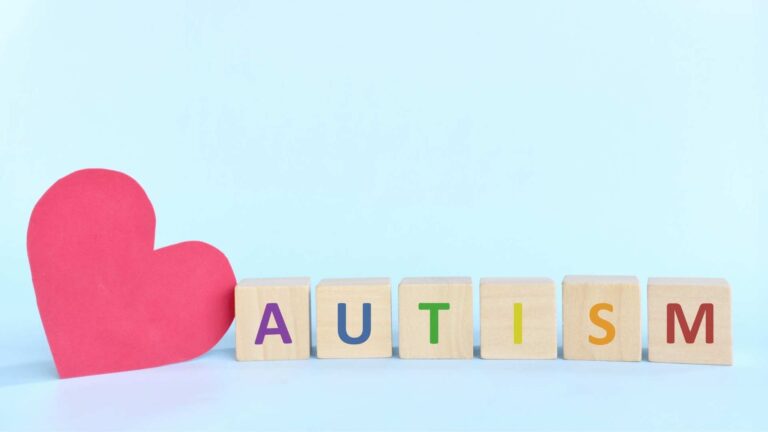Table of Contents
A recent White House briefing on autism created a stir with comments linking acetaminophen (Tylenol) use during pregnancy to autism. The announcement highlighted new label considerations by the FDA, discussed leucovorin, a folinic acid derivative currently being studied as a potential medical therapy for autism spectrum disorder (ASD). Officials also discussed prevalence data.
While national attention can be beneficial, it often leads to even more questions than answers for many families.
This guide from ABA Centers of Delaware breaks down the announcement, adds crucial scientific context, and clarifies what is proven to help children with autism today. We’ll explore the FDA’s position on acetaminophen, look at broader research into prenatal risk factors, and reaffirm the role of evidence-based therapies like Applied Behavior Analysis (ABA).
So, keep reading to learn more about this vital topic.
What Was Said During Trump’s Autism Announcement
The September 22nd announcement covered several topics, but two main points generated most of the headlines.
1. Acetaminophen (Tylenol) and Pregnancy Risk
President Trump cautioned expectant mothers about using acetaminophen, citing a potential link to a higher risk of autism in children. Following this, federal health officials clarified that current data show an association, not a direct cause.
The FDA has started the process to review and possibly update the labels on acetaminophen products to reflect this potential association.
This news is not entirely new. The link has been a subject of study for years. However, it’s crucial to understand that “association” is not the same as “causation.” Many factors can influence a child’s development, and research is ongoing.
2. Leucovorin as a Possible Therapy
The briefing also mentioned leucovorin, which is a folinic acid derivative—distinct from behavioral therapies like ABA. Leucovorin is being studied in early clinical trials for its potential to improve communication skills in some children with autism who have specific folate-related metabolic issues.
Leucovorin, however, is still considered an experimental medical treatment, and experts agree that much more research is needed before it can be regarded as a proven or widely recommended option.
Putting the News into Scientific Context
Headlines rarely capture the depth and nuance of autism research. The recent discussion around acetaminophen is best understood as part of a broader scientific effort to identify prenatal risk factors and clarify what truly supports positive outcomes for individuals with autism and their families.
Prenatal Exposures and Neurodevelopment
Scientists continue to examine how a mother’s health and exposures during pregnancy may shape a child’s neurodevelopment. Research is growing in areas such as infections, maternal immune activation, fever, and medications. These efforts are not about assigning blame; instead, they are about understanding and reducing risk.
A comprehensive 2021 meta-analysis evaluated over 10,000 children and found that maternal fever during pregnancy, from any cause, was associated with a modestly increased risk of neurodevelopmental disorders, including autism. The risk was most pronounced when fever occurred in the first trimester.
This evidence highlights that a variety of prenatal exposures, including but not limited to acetaminophen, are being actively investigated in the search to understand autism’s complex origins.
Importantly, no single risk factor has been identified as the primary cause for autism, and the interplay of genetics, environment, and prenatal health remains an active area of scientific study.
If you are pregnant or planning to become pregnant, do not alter your medication or treatment plan without the guidance of your healthcare provider, who can offer the best recommendations for your and your baby’s health.
The Role of Evidence-Based Interventions
Alongside ongoing research into causes and risk factors, the value of effective interventions is clear. Applied Behavior Analysis (ABA) therapy stands as the most rigorously validated treatment approach for helping children with autism build essential skills.
A 2024 peer-reviewed replication study tracked nearly 100 children with autism over one month and found statistically significant improvements in children’s target behaviors after ABA intervention. This large-scale, repeated measures analysis confirms that ABA produces measurable, positive changes in key developmental areas such as communication, learning, and daily living skills.
These findings reinforce what decades of earlier research established. While causes and risk factors for autism remain under investigation, evidence-based therapies like ABA provide families with real, meaningful support. They should remain the focus when considering immediate ways to help children thrive.
Focusing on What Works: Evidence-Based Therapy
ABA is not a “cure,” but a therapeutic framework designed to teach valuable skills and reduce challenging behaviors. It focuses on improving communication, social skills, daily living abilities, and academic performance. ABA care highlights each child’s unique strengths and needs, making it a highly personalized and practical approach.
The scientific support for ABA is both strong and current. The 2024 replication study also confirmed that ABA interventions led to statistically significant improvements in target behaviors for children on the spectrum over one year.
This recent study reinforces decades of research demonstrating that ABA therapy provides tangible, positive outcomes for individuals and their families.
Our Perspective at ABA Centers of Delaware
We believe in providing families with both hope and honesty.
- Hope: Progress is being made in understanding autism, and effective therapies are available to help your child build a bright future.
- Honesty: No single headline tells the whole story. Families deserve balanced, evidence-based information, not fear or guilt.
National announcements can feel overwhelming. Headlines about “acetaminophen autism” may spark anxiety, but it’s important to remember that you did not cause your child’s autism. Autism is a complex neurodevelopmental condition with no single known cause.
Final Thoughts for Families Considering Trump’s Recent Autism Announcement
The recent autism briefing brought national attention to the topic, but it raised more questions than it answered. While the FDA is reviewing the association between acetaminophen and autism, this is just one piece of an extensive and ongoing scientific inquiry. Leading experts and organizations urge families to interpret this news with caution.
Instead of focusing on unproven causes, the most productive path forward is to focus on proven solutions while we all learn more. Trusted medical advice and evidence-based care like ABA therapy are the most powerful tools available to support your ASD child’s growth, confidence, and independence.
More About ABA Centers of Delaware
At ABA Centers of Delaware, our mission is to provide compassionate, scientifically validated ABA care that makes a real difference for families living with autism today.
We commit to continually sharing updates on new research with the clarity and context you deserve.
Contact our expert ABA team for a free, confidential consultation. Reach us online or call us at (844) 855- 8517 to learn how the services and support we offer at ABA Centers of Delaware can help your family.






